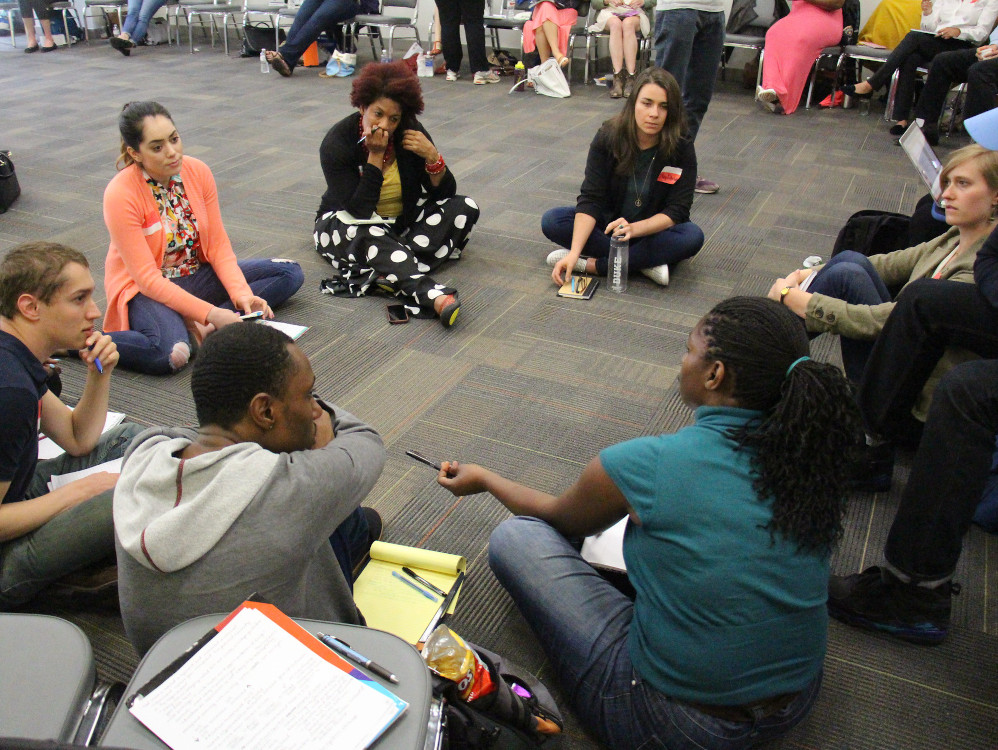Charles Brammall on being a good member of a small group
My Commitment to Home Group – Being a good member
If you’re married and your spouse is in a home group, encourage but don’t pressure them to attend it regularly, even when they’re tired or don’t feel like it. Chiq sometimes does this with me, and vice versa. But be gracious. And model it in your own regular attendance. Be honest with each other if you don’t feel like going, but try to make the effort anyway.
If one of you has been wronged by someone in their group, encourage (but don’t pressure) them to: “love their [short term, micro] enemies, and pray for those who persecute them”. (Matthew 5:43-45). Because “If you love those who love you, what reward will you get? Are not even the tax collectors doing that? And if you greet only your own people, what are you doing more than others? Do not even pagans do that?” (Matthew 5:46-47).
This is a challenging and countercultural thing to do and probably the most distinctive and influential thing about Christianity. It seems to me we often don’t do this as Christians.
The 100: A Ranking of the Most Influential Persons in History, a well-known book by astrophysicist Michael Hart, speaks to this. It is not a ranking of the best or most productive people but of the most influential. The person he ranks as number one is not Jesus. Nor is he the person at number two. Jesus comes in at number three.
The reason Hart gives for this is that, in his experience, the followers of Jesus don’t obey his commands. Unlike the followers of Mohammed, the number one in the book.
Mohammed’s followers obey their prophet’s commands, but Jesus’ followers don’t follow His difficult commands. He says Christians often don’t love their enemies, pray for those who persecute them, and love those who don’t love them. Our home groups are an excellent place to prayerfully attempt to do this (even with our micro, short-term “enemies”.)
Being Leaven in My Small Group
If one night in a group, the discussion is not applying the passage or topic to our own lives (and in my experience, this happens often), gently try to steer the conversation. Model this for others by talking about how it applies to you, especially being honest about your sins and foibles.
One of the Christian leaders I have been most encouraged and challenged by is Col Marshall (former leader of the Ministry Training Scheme, which promotes ministry apprenticeships). This was through his honesty about his own weaknesses, foibles and mistakes. It made me realise, with a great sense of relief, that I wasn’t the only one experiencing these things and that even the great ones experience the same temptation as me.
Admitting my own struggles like this in my small group works surprisingly well, and others in your group will begin to do the same thing. A new vibe can develop, and the whole feel and tenor of the group changes.
Someone in a past group I was in shared about how they are having relationship counselling with their spouse because things weren’t going well for them. This person shared how they were initially sceptical and resistant, but they’ve been surprised and gratified by how helpful (although difficult) it has been.
They were surprisingly honest about how they had learned that what they were doing as a spouse was inadequate and ultimately unhelpful. They weren’t trying to understand their spouse’s needs (which were entirely different from their own).
This person was learning that their spouse was an entirely different person to them – in a delightful way, not the same as them. The two of them had different needs and strengths and thresholds and boundaries. Their spouse was “remarkably and wonderfully made. (God’s) works are wonderful.” (Psalm 139:14).
The fact this person shared this with us was great for the group, and the rest of us began sharing equally personal and significant things. We have started reading the Bible as it is – life-changing words from God that speak into the most significant parts of our lives. Out of their despair, this person did a service to us that they didn’t even mean to do.
Image Credit: ironypoisoning/Flickr

